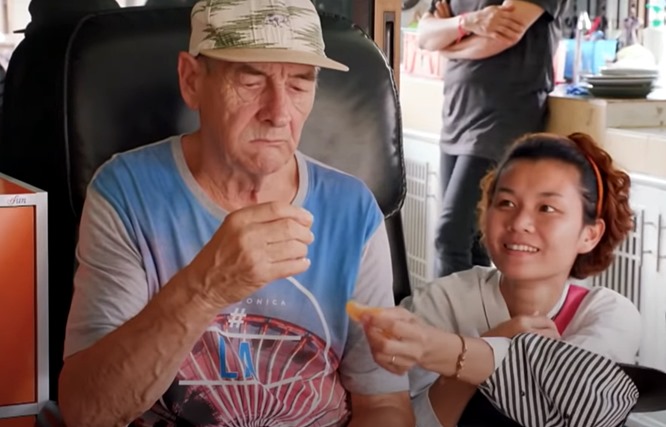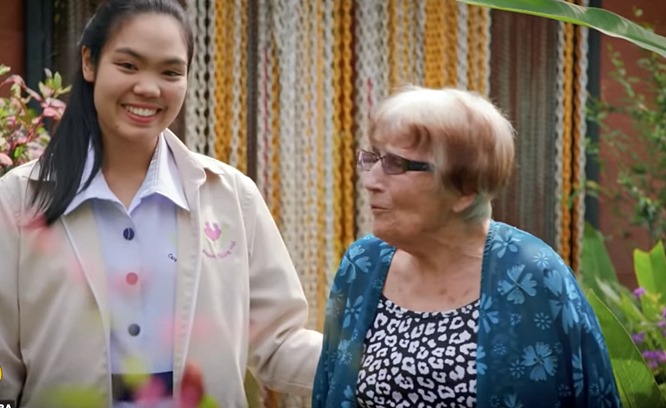
As elderly care homes in the United States and Europe become ever more badly run and far too expensive for many, some Europeans and Americans are beginning to take their parents and other elderly relatives to Thailand to live instead.
Elderly care homes in Thailand are usually cheaper than they are in the U.S. and Europe. They are also often better run, with caregivers that actually care about the elderly people they take care of, instead of being the abusers some working in western retirement homes have become.
As elderly care homes continue to worsen in the west, it is likely more Europeans and Americans will help their relatives move to a home in Thailand.
With both Thais and westerners living in Thailand realizing the potential for both a good business opportunity and a way to offer a happy, healthy rest of their lives to tens of thousands of western retirees needing care homes, it is likely these types of facilities in Thailand will also only grow in number.

Why could elderly care homes in Thailand become the future for many western retirees?
A documentary by the news broadcaster Al Jazeera in their series 101 East looked at this trend for elderly westerners suffering from dementia, and the reasons why being taken care of in homes in Thailand is likely to become more popular in coming years for many.
Reasons that make sense for westerners with elderly relatives needing round-the-clock care they cannot possibly give them themselves.
(continue reading after advertising…)
They include:
- The affordable cost of a care home in Thailand versus the unaffordable cost in the west.
- 24-hour a day one-on-one care in Thailand, 365 days a year. This means round-the-clock care from a dedicated team of caregivers who properly look after the elderly people in their charge. Not only does the person being taken care of feel safe as they are familiar with their caregivers, it also gives family members the security of knowing who their relatives’ caregivers are and will likely continue to be long-term. This is also vital for people suffering from illnesses like Alzheimer’s. Sadly, however, it is the opposite situation to western care homes where, after 6 pm, most care staff go home and where staff turnover rates remain high.
- The Asian respect for the elderly, and how older people are treated like valued family members even if they are not, means there is less chance of an elderly parent being mistreated or ignored than there is in a western care facility.
- Care homes in Thailand are not like hospitals, but instead feel like a real home. Many elderly people do not like the sterile environment of western care homes, or feeling as though they are locked in an institution with no way out.
- Care facilities in Thailand often organize day trips or activities for residents who are physically able to take part in them, versus in the west where people in a care home may be offered nothing except sitting in front of a TV all day.
- Some of the care homes in Thailand are British, American or European-owned and operated. This means the elderly people living there benefit from being around people from their home countries — both other residents and the homes’ owners or staff.
- The year-round warm weather and sun in Thailand is vitally important, as studies show not only does it make the elderly feel happier, but symptoms of illnesses like dementia and Alzheimer’s can worsen in dreary climates and in cold, wet weather.
When westerners with elderly residents look at the many advantages of having them live in a care home in Thailand, even if that means they are living thousands of miles away, it is often the best and most affordable choice available.
Watch the short Al Jazeera documentary profiling several European and American families who chose to have their loved ones being taken care of in a Thai care home, and you may decide that option is the best one for your own loved one as well.
